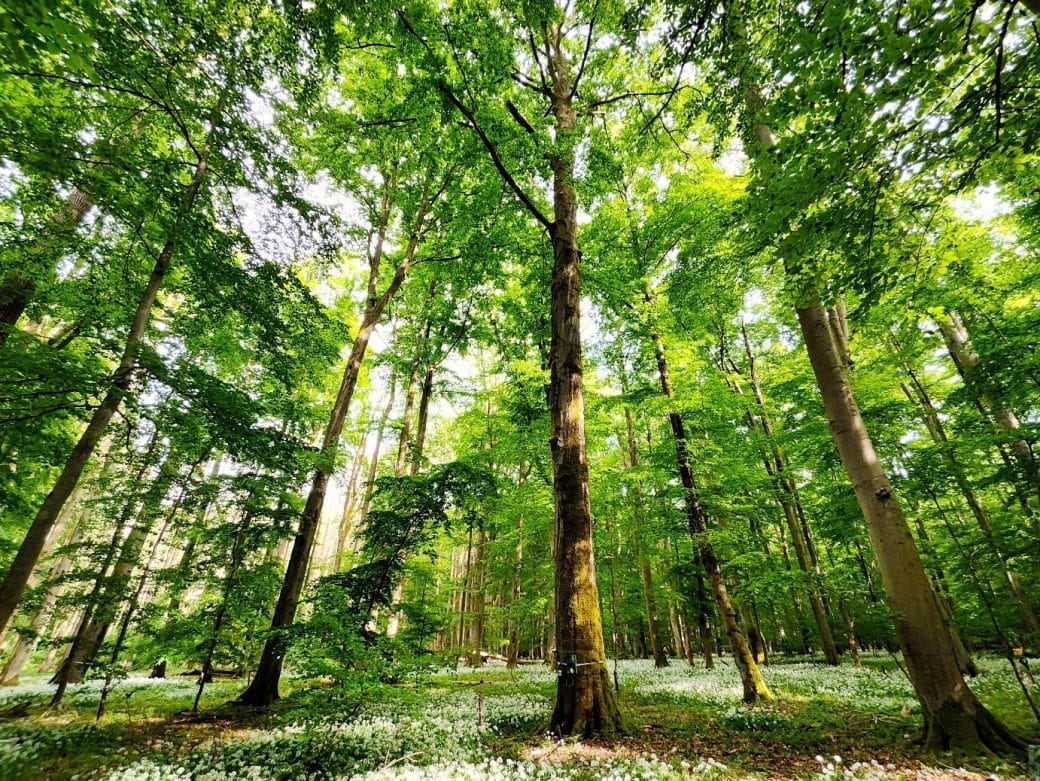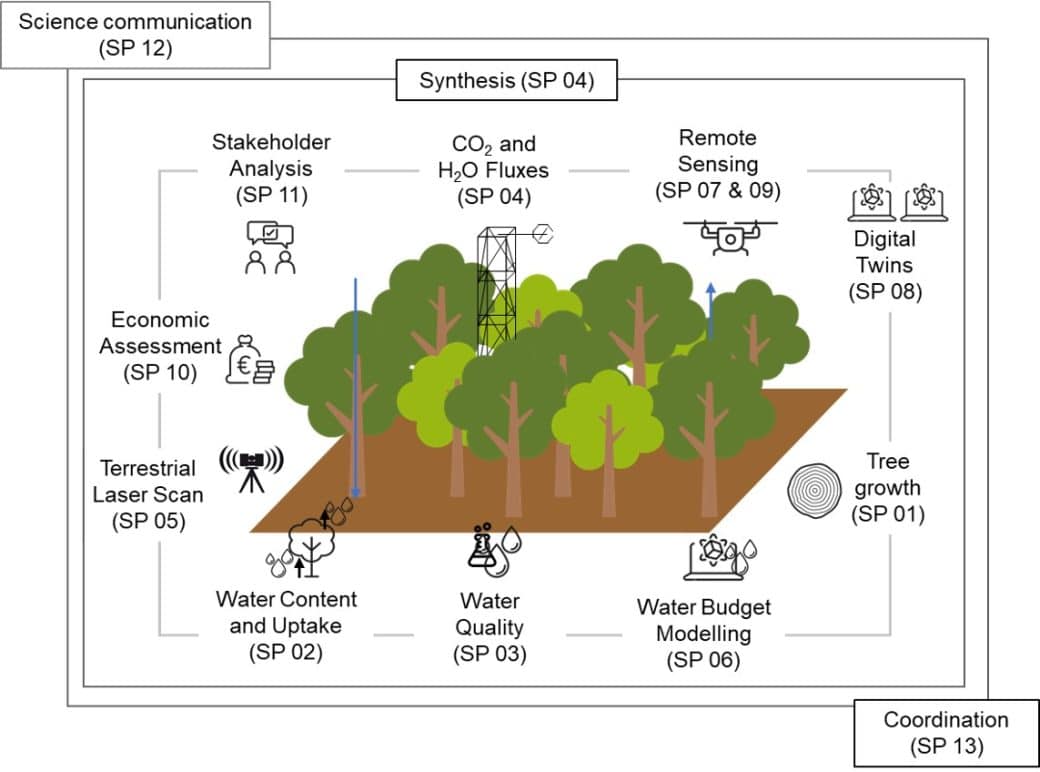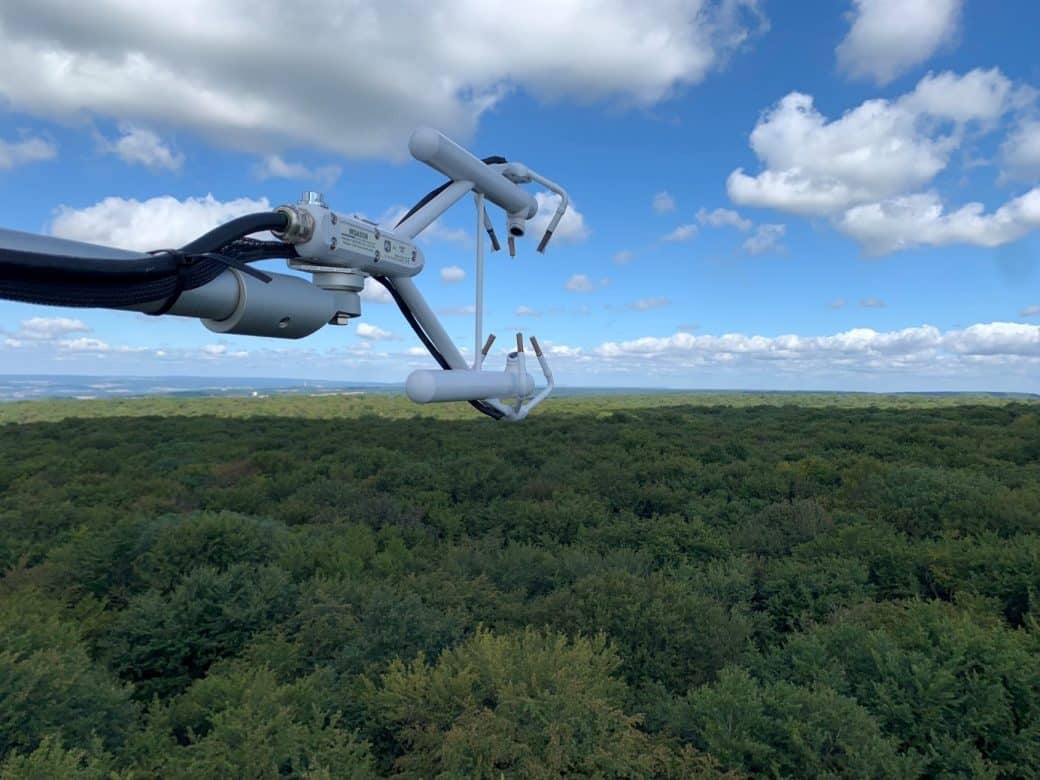FoResLab – Future Lab towards Forests Resilient to Climate Change

Climate change has a direct impact on forests in Central Europe. These changes pose a major challenge for the management and conservation of forests, as they provide key ecosystem functions and services for society – such as CO₂ sequestration, biodiversity and water storage. In view of these challenges, there is an urgent need for solutions that strengthen the resilience of forests to current and future climate conditions.
FoResLab was founded as one of currently five Climate.future laboratories in Lower Saxony and pursues a strongly inter- and transdisciplinary approach. The aim is to find scientifically sound and practice-relevant answers to the question of how forests can be made resilient under the conditions of climate change. The project brings together experts from various universities, research institutions and practice partners to ensure a close connection between science, business and civil society.
FoResLab is funded by zukunft.niedersachsen, a funding programme of the Lower Saxony Ministry of Science and Culture and the Volkswagen Foundation. The research is divided into three platforms and 13 subprojects, whereby experimental, digital and social aspects are given equal consideration. The focus is on the development of new management concepts, the use of state-of-the-art sensor technology and digital twins as well as the involvement of social stakeholders in order to support the transformation towards climate-resilient forests.
FoResLab aims to use innovative research, digital technology and social participation to find ways to create climate-resilient forests and make this knowledge widely available. The project thus makes an important contribution to the protection and sustainable management of forests in the face of climate change.
FoResLab uses a comprehensive range of methods and is organized on three platforms to answer the central question of the resilience of forests to climate change:
Experimental platform
- Investigation of relevant ecosystem functions and services (e.g. CO₂ uptake, water storage) at six highly instrumented forest sites
- Use of state-of-the-art near-real-time sensor technology to continuously collect environmental and inventory data
- Harmonized experimental design to derive multifunctional indicators of forest resilience.
Digital platform
- Development and use of digital twins of the test sites: These digital images make it possible to virtually simulate and evaluate different management options and their effects on real forests.
- Aerial and space-based remote sensing and modeling approaches for large-scale and detailed recording of forest condition and development.
- Online forest water stress monitor: A digital tool that monitors water stress in forests in near real time with high spatial and temporal resolution and makes it publicly accessible.
Societal platform
- Involving and surveying stakeholders (e.g. forest owners, forestry, society) through interviews and workshops to capture their preferences, perceptions and motivation for forest transformation.
- Developing local transformation pathways together with stakeholders and experts.
- Conducting economic experiments to identify societal preferences for different forest functions.
Evaluate behavioural strategies to promote public support for climate-resilient forests, including through randomized controlled trials.











